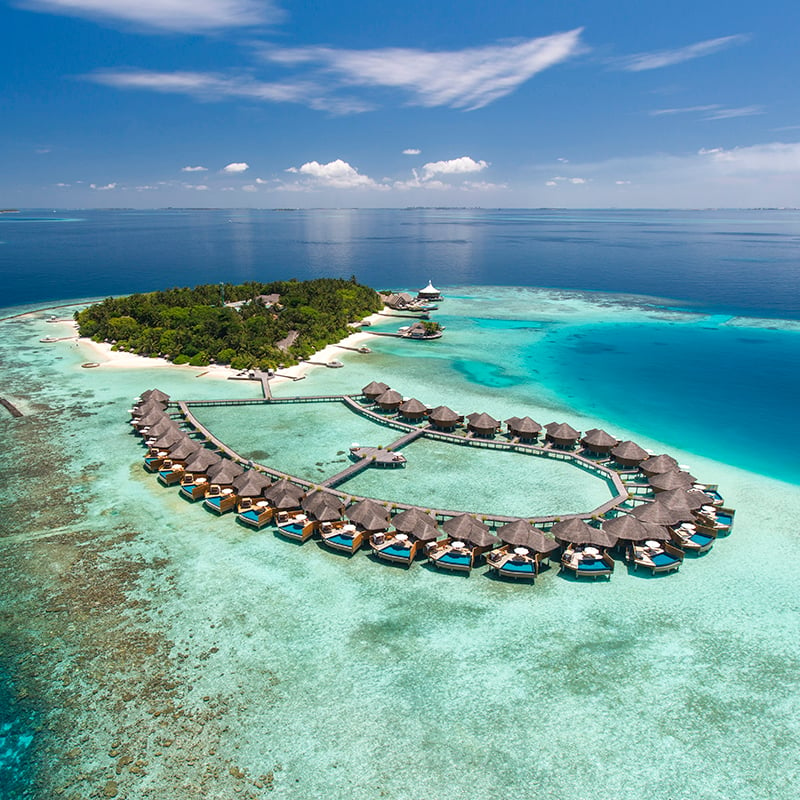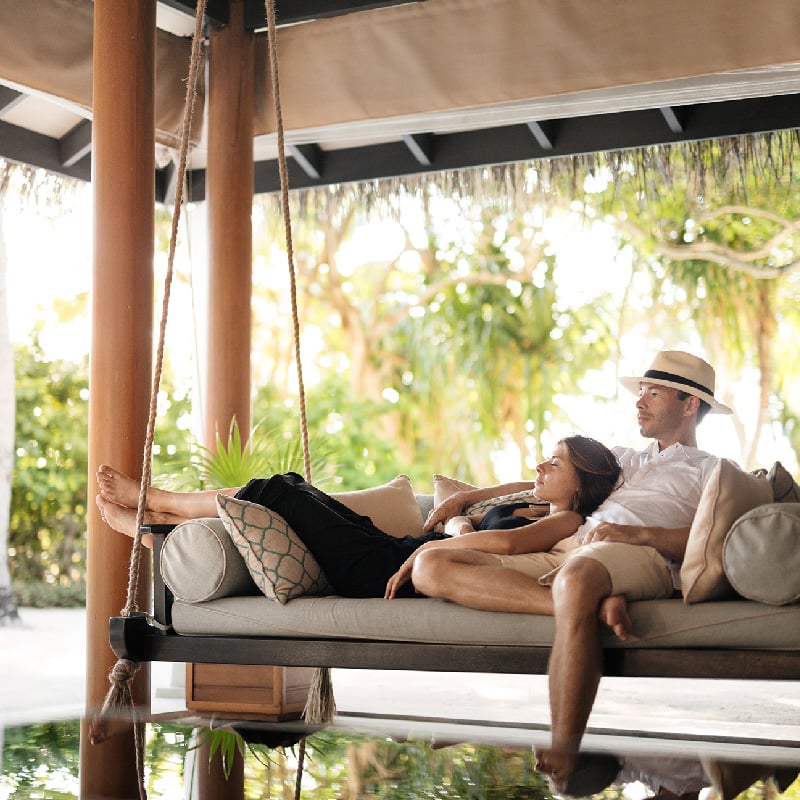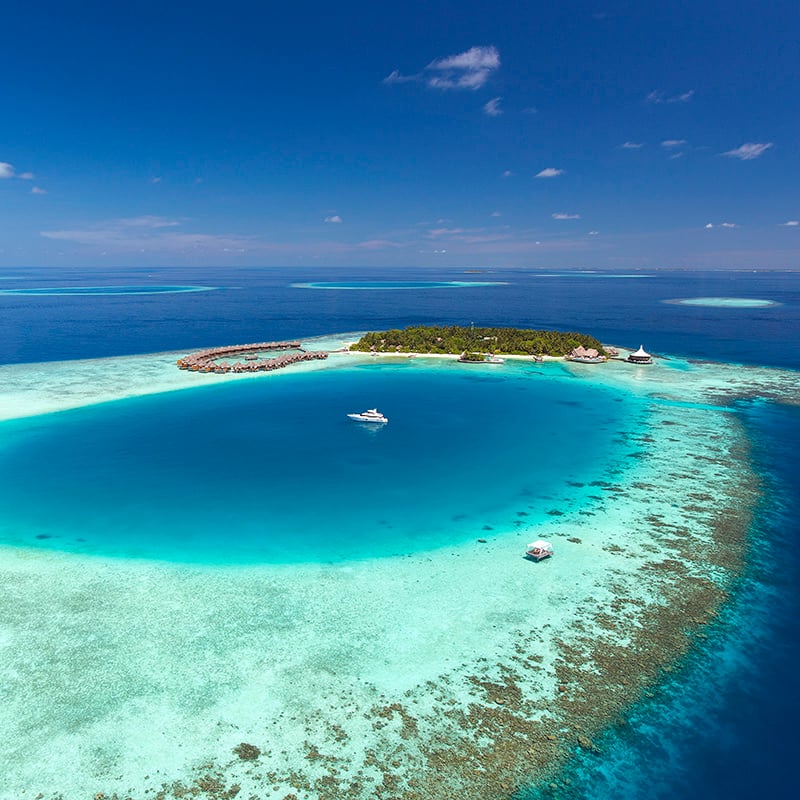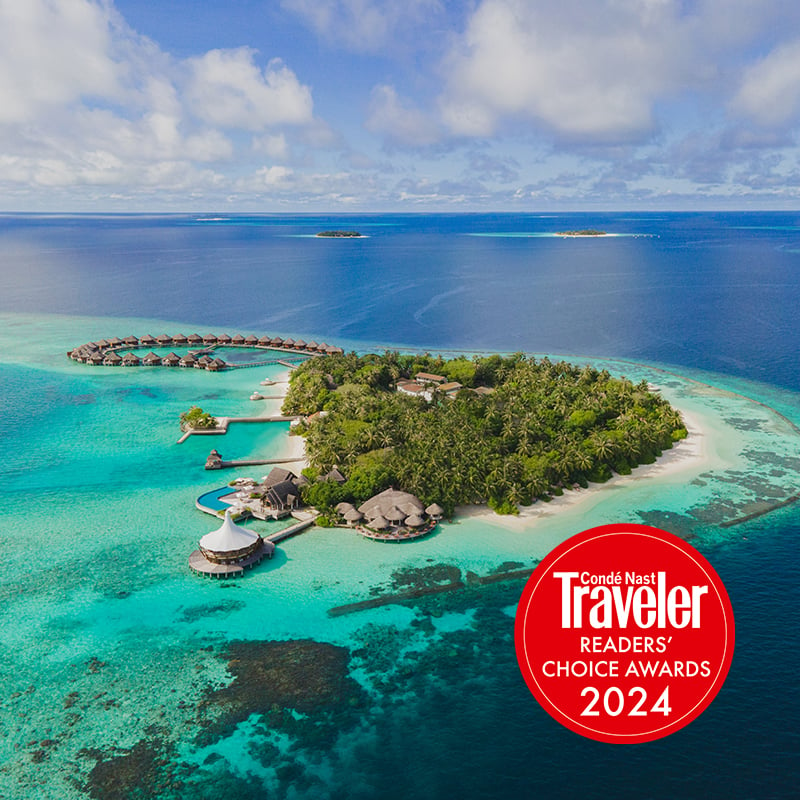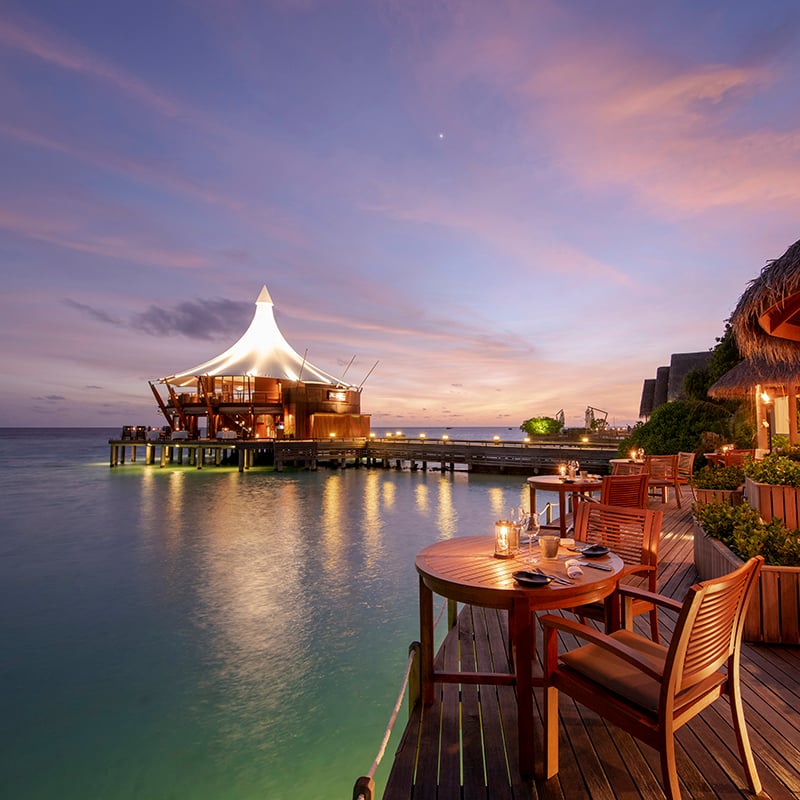Snorkelling With Turtles In Maldives
9 June 2021 | All Blogs, Destination, Experience
Snorkelling is one of the best experiences in Maldives. You can snorkel in the beautiful coral reefs and often come across turtles. The most common types of turtles that you would come across while snorkelling in Maldives are Hawksbill sea turtles. This type of turtles are found in large numbers, especially around the house reef at Baros, one of the best house reef in Maldives. Currently, we have 20 Hawksbills turtles dwelling in our house-reef, and the number is growing.
1. The Hawkbill Turtle
The name Hawksbill comes from the shape of the turtle’s beak which, thanks to a hooked overbite, is reminiscent of a hawk’s bill. The hawksbill turtles do not grow very large, unlike green sea turtles. Hawksbills grow up to about 45 inches in shell length. They have a very striking pattern on their shells which is usually hunted for and sold as jewellery. Capturing and killing of Sea Turtles are prohibited by law in the Maldives.
2. The Hawksbill’s diet
Hawksbill sea turtles are omnivorous and they have a varied diet that includes small crustaceans, sponges and jellyfish. This diet results in their flesh having a green tint, although it is not visible as they are covered with a complex pattern of scales called scutes.
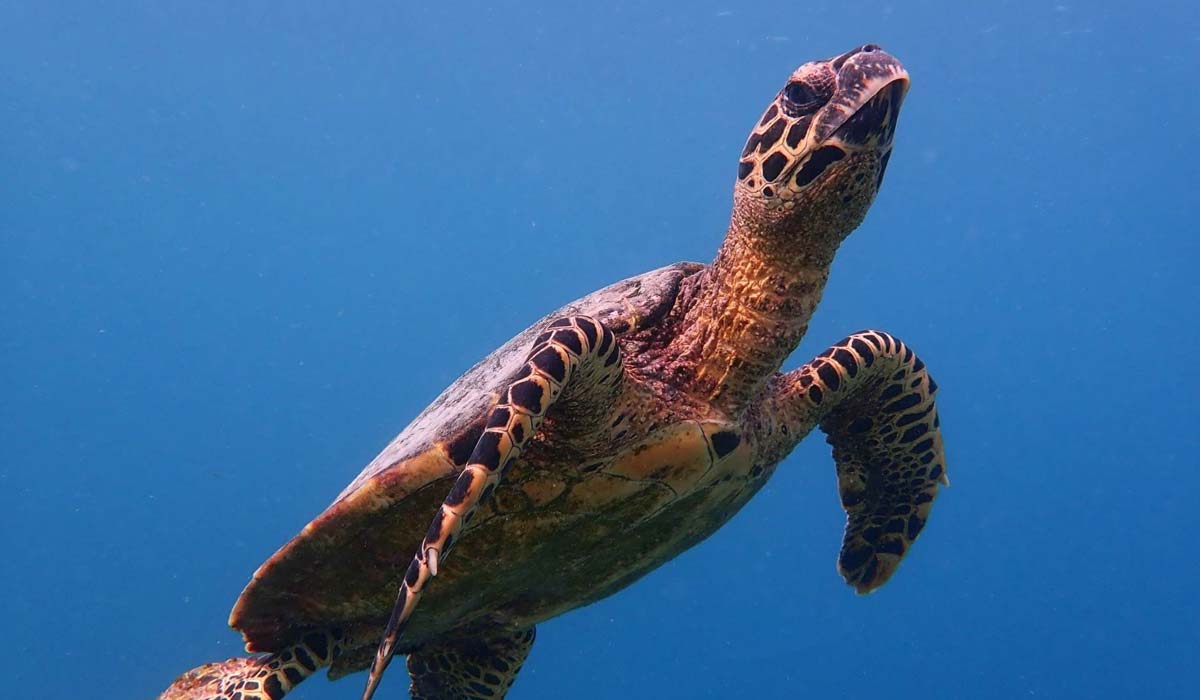
3. The Hawksbill’s scutes
The Hawksbill turtles seen around the Baros house reef are distinguishable from other turtles by their unique scute patterns on the sides of their faces. They also have other defining features like nicks in their shells or flippers.
Pictured in this article is the Hawksbill turtle we call Bonthi, the friendliest and most photogenic turtle of our house reef. This turtle is identifiable by the scute pattern near the eye, which resembles the tail of a whale. Guests often see him swimming around the “Playground Reef” behind the Baros Water Villas.
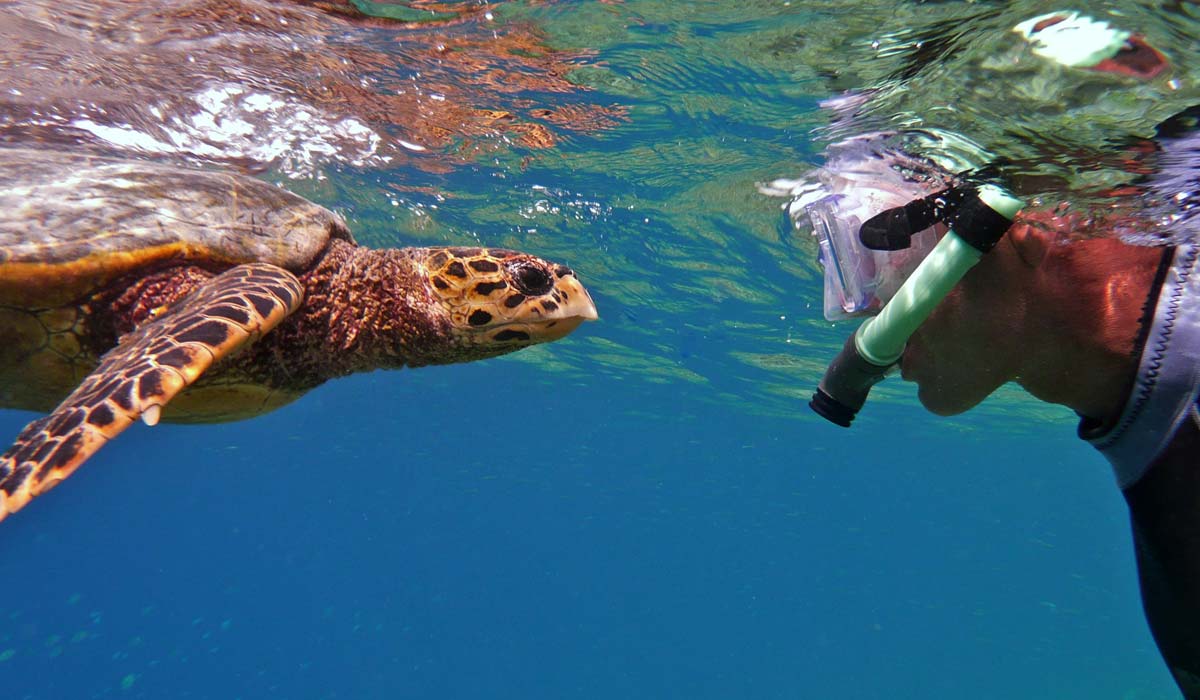
4. Protecting our Hawksbill Turtles
Hawksbill sea turtles are currently listed as critically endangered on the International Union for the Conservation of Nature (IUCN) Red List of protected species. Unfortunately, various kinds of pollution in the ocean result in Hawksbill sea turtles sometimes ingesting waste. This can make them sick and unable to dive for food due to gaseous build-ups. At Baros, we are dedicated to protecting not only our Hawksbill turtles but also the marine eco-system from harm. We conduct recycling efforts and hold the awareness and informational presentations for our guests and team members. We also carry out frequent coral transplantation to rejuvenate our house-reef.
5. Hawksbill nesting at Baros
As a result of our efforts, Baros is the only island in North Male’ Atoll where Hawksbill sea turtles regularly nest. Our guests have been amazed to witness the spectacular hatching of hundreds of baby turtles on the beach and the moment they enter the sea for the first time. In 2020, we have had three turtle nests and hatchlings.
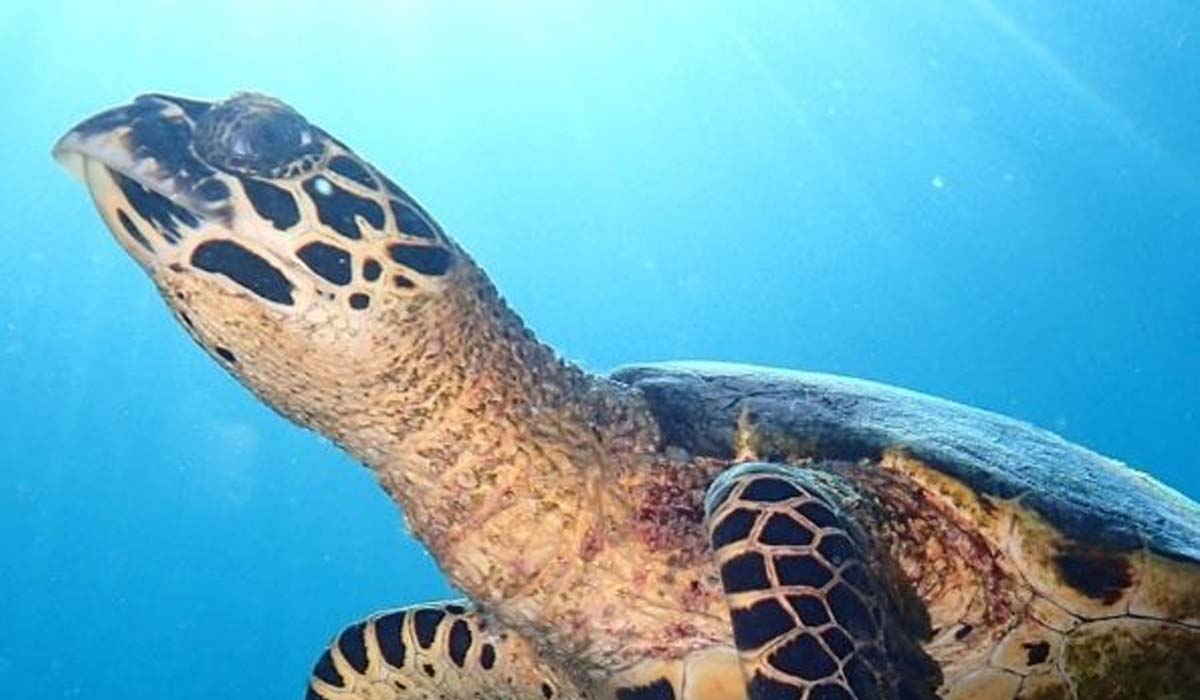
 English
English  РУССКИЙ
РУССКИЙ  DEUTSCH
DEUTSCH  简体中文
简体中文  Spanish
Spanish 